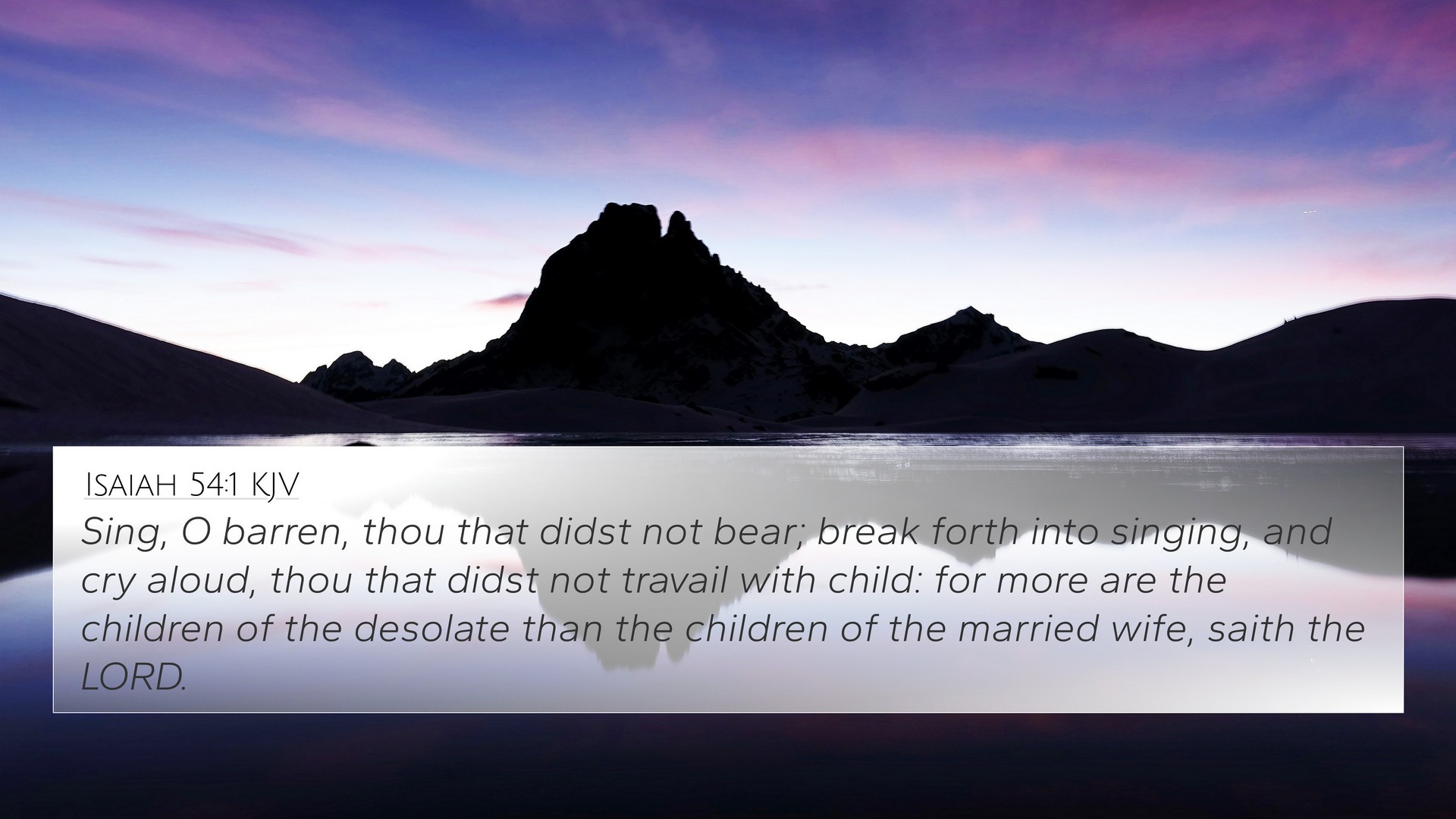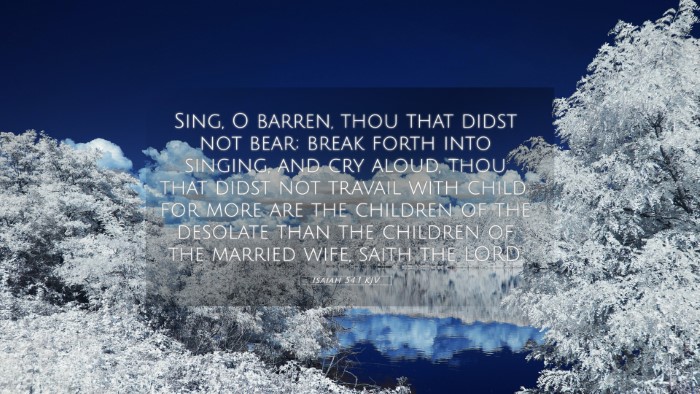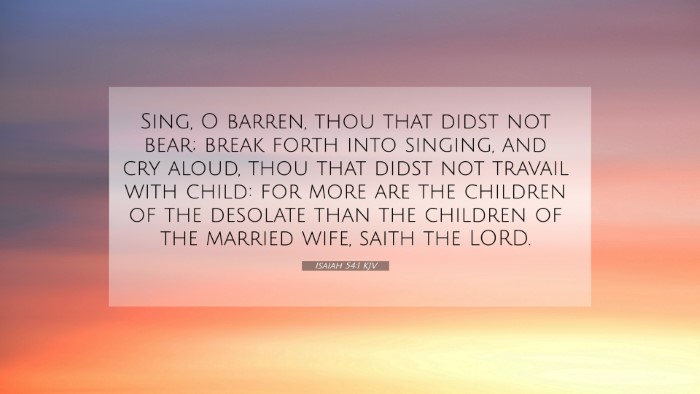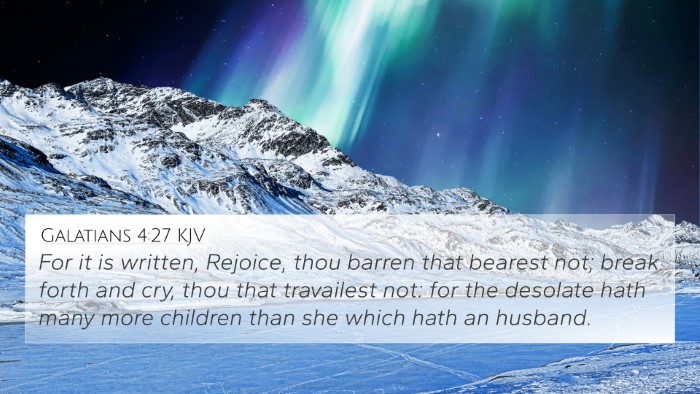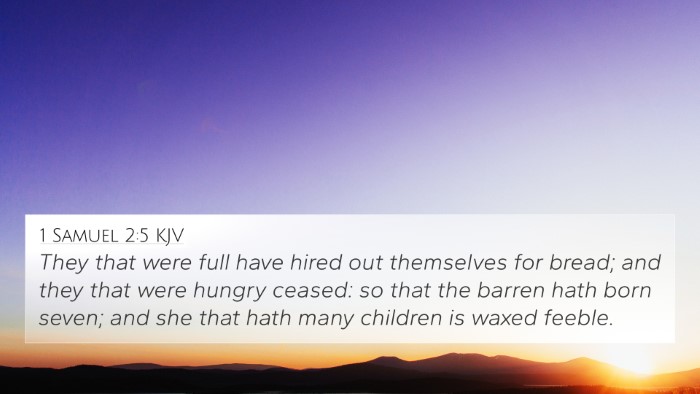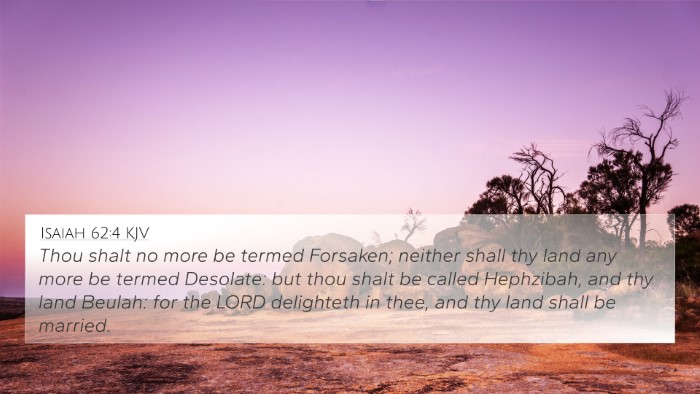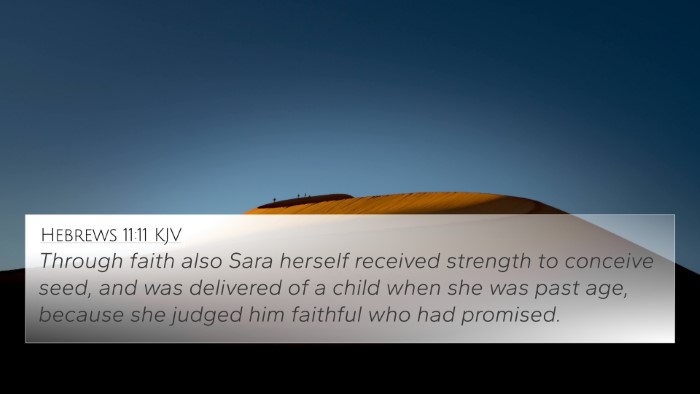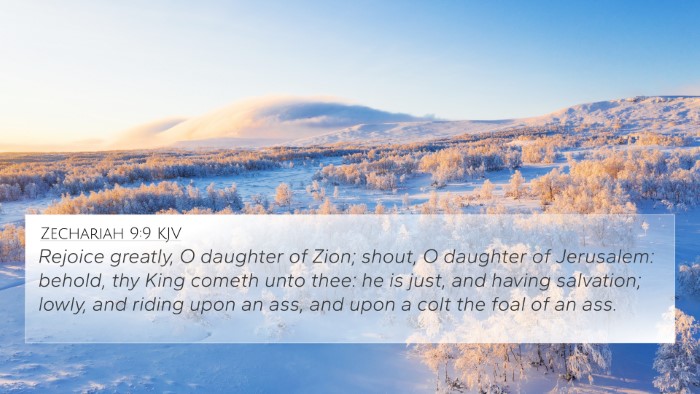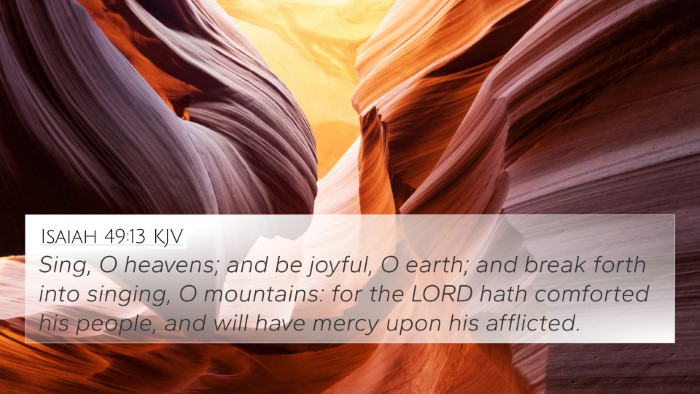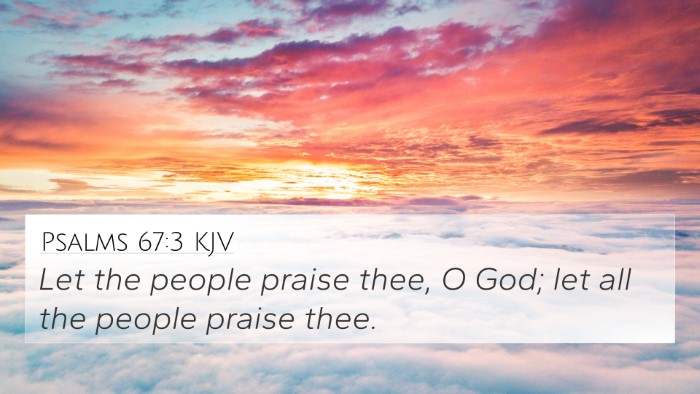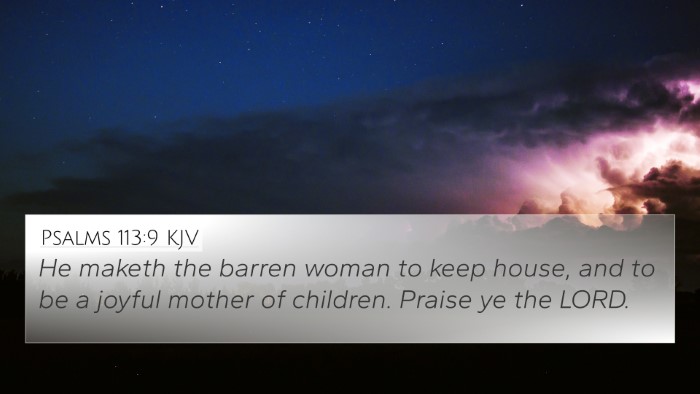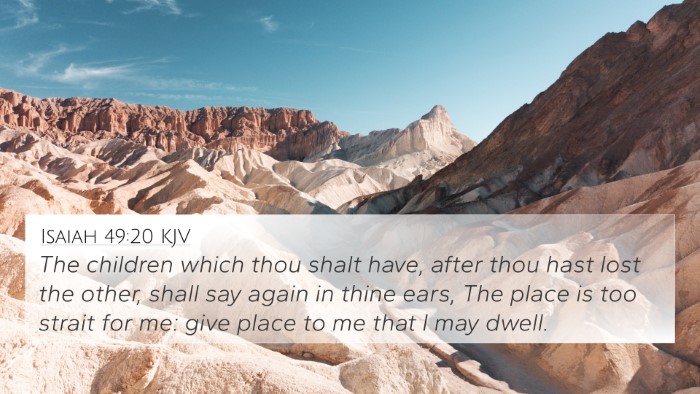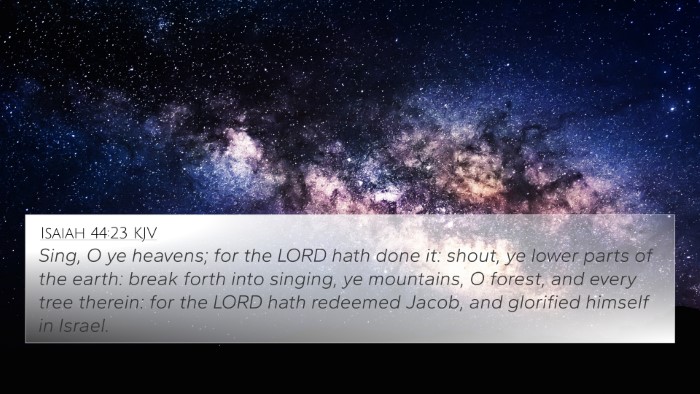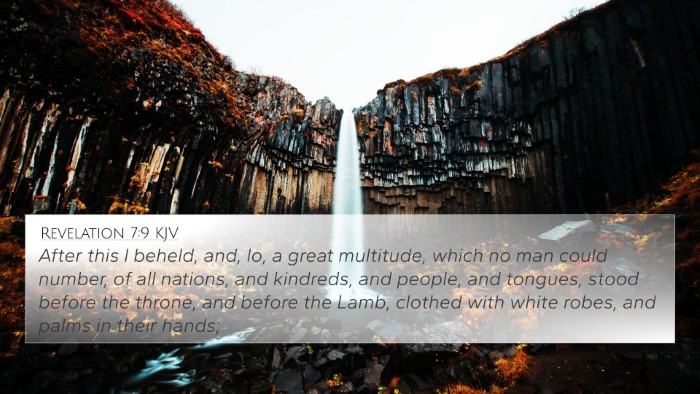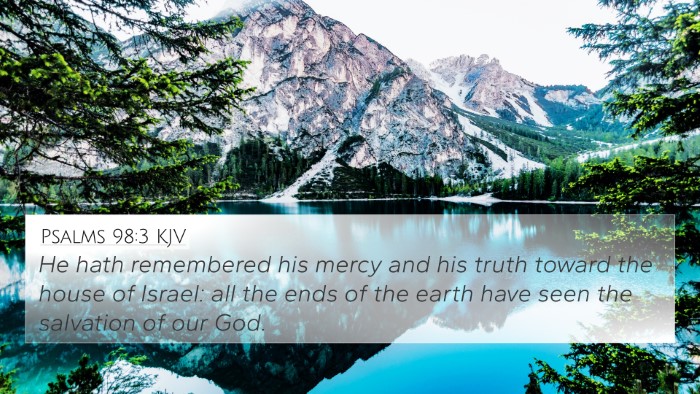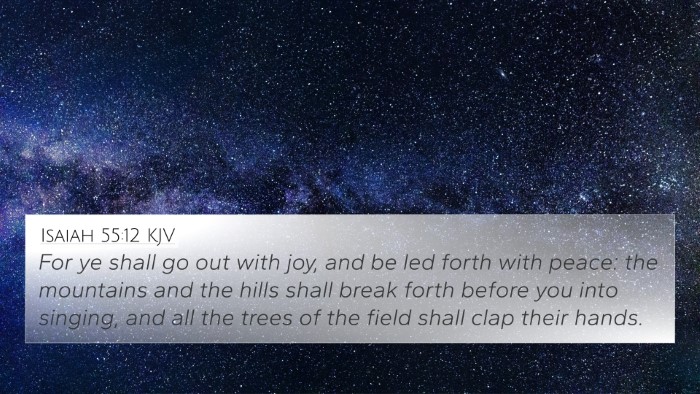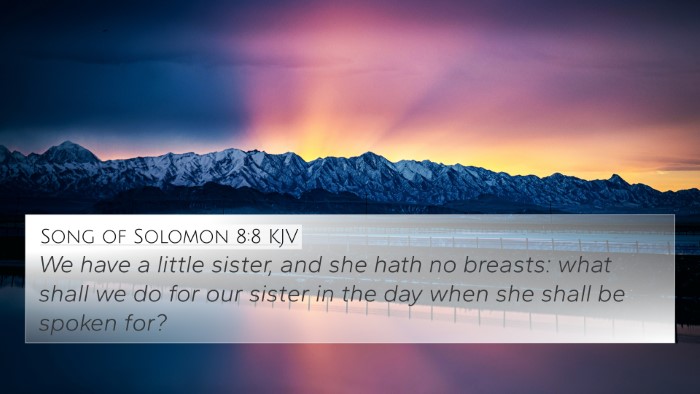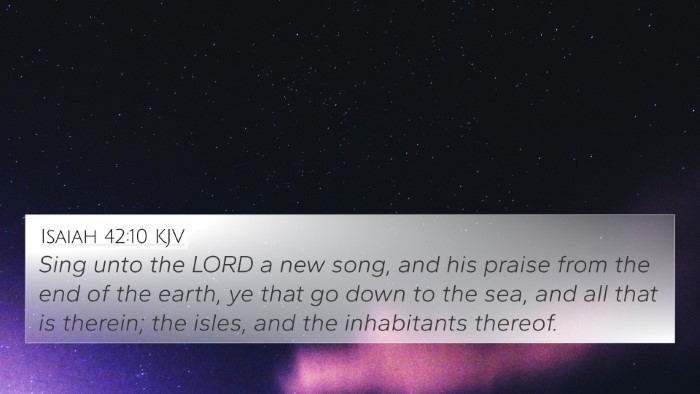Understanding Isaiah 54:1
Verse: "Sing, O barren, thou that didst not bear; break forth into singing, and cry aloud, thou that didst not travail with child: for more are the children of the desolate than the children of the married wife, saith the LORD." (Isaiah 54:1, KJV)
Summary of Insights
Isaiah 54:1 serves as a powerful message of hope and restoration for the people of Israel, symbolizing the transition from desolation to abundance. This verse encourages the faithful to rejoice, even in circumstances that seem dire, as God promises a future filled with blessings.
Commentary Insights
- Matthew Henry: Emphasizes the significance of singing as an act of faith. The barren woman, representing the desolate state of Israel, is commanded to sing, highlighting the paradox of joy amidst suffering. He further asserts that the promise of God includes a multitude of spiritual descendants.
- Albert Barnes: Discusses the metaphorical use of barrenness. Barnes notes that this barrenness represents the church or Israel in exile and their future restoration. He concludes that the increase in children symbolizes spiritual growth and the enlargement of God's covenant people.
- Adam Clarke: Offers a contextual interpretation, suggesting that the verse reflects Israel's situation and God's assurance that their suffering will be transformed into joy. Clarke points out that the reference to the "desolate" aligns with the promise of divine favor returning to those who repent.
Cross-Referencing Biblical Texts
This verse resonates with several key themes throughout the Bible, facilitating a deeper understanding through cross-references. Here are 10 relevant Bible verses that connect and enhance the meaning of Isaiah 54:1:
- Galatians 4:27 - "For it is written, Rejoice, thou barren that bearest not; break forth and cry, thou that travailest not: for the desolate hath many more children than she which hath an husband."
- Romans 4:18 - "Who against hope believed in hope, that he might become the father of many nations; according to that which was spoken, So shall thy seed be."
- Luke 1:42 - "And she spake out with a loud voice, and said, Blessed art thou among women, and blessed is the fruit of thy womb."
- Isaiah 49:20 - "The children which thou shalt have, after thou hast lost the other, shall say again in thine ears, The place is too strait for me: give place to me that I may dwell."
- 1 Peter 2:9 - "But ye are a chosen generation, a royal priesthood, an holy nation, a peculiar people; that ye should shew forth the praises of him who hath called you out of darkness into his marvelous light."
- Isaiah 51:3 - "For the LORD shall comfort Zion: he will comfort all her waste places; and he will make her wilderness like Eden, and her desert like the garden of the LORD; joy and gladness shall be found therein, thanksgiving, and the voice of melody."
- John 15:5 - "I am the vine, ye are the branches: He that abideth in me, and I in him, the same bringeth forth much fruit: for without me ye can do nothing."
- Revelation 21:4 - "And God shall wipe away all tears from their eyes; and there shall be no more death, neither sorrow, nor crying, neither shall there be any more pain: for the former things are passed away."
- Isaiah 60:22 - "A little one shall become a thousand, and a small one a strong nation: I the LORD will hasten it in his time."
- Psalm 113:9 - "He maketh the barren woman to keep house, and to be a joyful mother of children. Praise ye the LORD."
Thematic Connections
The theme of barrenness and subsequent fruitfulness recurs throughout Scripture, illustrating God's redemptive plan in both individual lives and collective narratives. The encouragement to "sing" serves as a central motif, representing both the act of praise and the anticipatory joy of the faithful.
These connections enhance our comprehension of prophecy and fulfillment, illustrating how God's promises transcend individual circumstances to encompass the broader narrative of restoration for His people.
Bible Cross-Reference Guide
Utilizing a cross-reference Bible study approach enables one to explore the continuity of themes in Scripture. Engaging with the connections between Isaiah 54:1 and the referenced verses can be facilitated using tools such as a Bible concordance or a Bible cross-reference guide.
Conclusion
Isaiah 54:1 invites readers into a profound understanding of spiritual barrenness transformed into fruitful existence through God's sovereign will. The act of singing is not merely an emotional response but a declaration of faith in the promises of God, encouraging believers to recognize their identity as part of a larger narrative of hope, restoration, and divine assurance.
